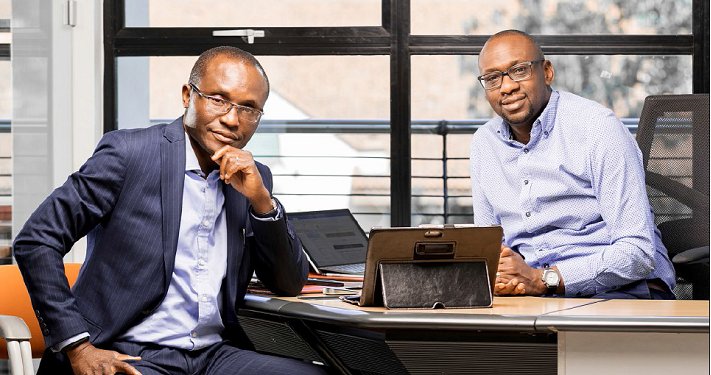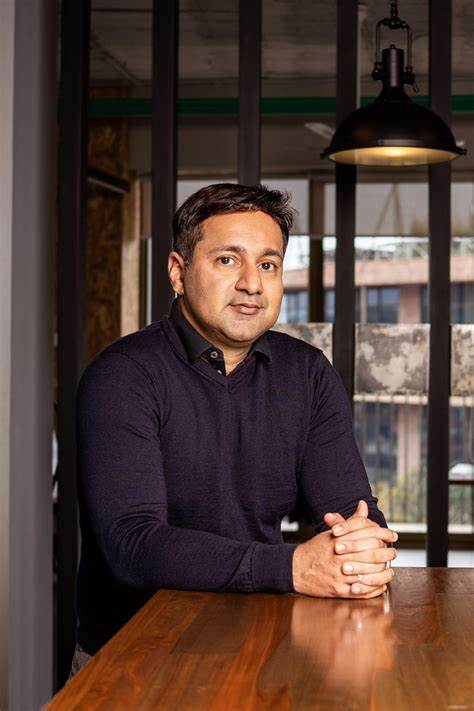Visit Kenyaa African fintech stands out admirably from the rest. It is CellulantThis pan-African company was founded in 2004 and has since expanded to several other African countries. It is one of the oldest fintechs to have emerged in Africa. It is also one of the companies that has propelled the payment technology business on the continent. Discover in this article the evolution of Cellulant, the fintech that contributed to and survived the birth and rise of an entire technological era: that of the digital payment in Africa.
The beginnings of the Cellulant adventure
It's impossible to talk about fintech in Africa without mentioning Cellulant, the famous Kenyan company which contributed in the 2000s to democratize the services of digital payments in Africa. Nearly twenty years on, the company continues to extend its tentacles into Africa, adapting to consumer needs and market developments. But how did it all begin?

Cellulant was founded in 2004 by Ken Njoroge and Bolaji Akinboro. At the time, the small company broadcast extracts of popular music on subscribers' answering machines, in return for a monthly fee. This service continued until 2007, when things got complicated for the company. In just three years, the first version of Cellulant had more than eight million subscribers. But most of the profits went to mobile operators. In their search for ways to collect money directly from their customers, the founders came up against the banks' refusal.
At the time, digital payment methods were almost a myth in Africa, and no financial institution was willing to finance or take part in a project as risky as creating a mobile payment system. As if that wasn't enough, Safaricom one of Cellulant's partners began offering free answering machine ringtones to its subscribers. This signalled the end of this activity for the company and the start of a new adventure.
Digital payment services: a new direction for Cellulant
Faced with the inevitable prospect of a decline in their core business, Cellulant took the initiative of developing a prototype for a mobile payment for banks. However, it has met with resistance from these financial institutions.
Meanwhile, Safaricom launched MPESA in Kenya. The service was a runaway success and quickly captured a significant share of the money transfer market. The emergence of MPESA achieved one thing: it proved that the sector was viable, which prompted the banks to change their minds and follow Cellulant.
Between 2007 and 2008, Cellulant became the first company to link banks to the M-Pesa mobile money system, despite the fact that these same banks had initially rejected the fintech's proposals. The company soon began to extend its services to other organisations, including many Kenyan multinationals. This contributed to its transformation into the large company we know today.
It should be noted that from 2010, the financial technology company extended its activities to Ghana, Zambia and Botswana. By 2020, it had extended its presence to 13 African countries. It currently has offices in 18 countries and serves a further 35 through its digital payment platform, Tingg. Cellulant only received its first institutional investment in 2011. In fact, TBL Mirror Funda private equity fund, injected $1.5 million into the company. Subsequently, in 2014, Velocity Capital Fintech Ventures has granted funding of 5.5 million. These two major investments enabled the company to consolidate its position as the leader on 12% of the consumer mobile payments market in Africa. Four years later, in 2018, Cellulant successfully raised 47.5 million thanks to the The Rise by TPG GrowthAt the time, this was the largest investment ever received by a financial technology company operating exclusively in Africa.
And what about today?
October 2022, Akshay Groverhas been appointed interim CEO following the departures of of Akinboro and Njorogethe two co-founders of the company. He then officially took over as CEO of the group, putting himself at the head of one of the largest pan-African payment companies.

Cellulant is a leading provider of relevant and alternative local payment methods for global, regional and local merchants. Through a unique API payment platform, the fintech offers businesses a way to receive payments both online and offline. All this while allowing everyone to pay via mobile money, with credit cards or directly from their bank. Cellulant is a pan-African company that contributes to sustained, shared and sustainable economic growth.
Cellulant is a leading multinational payment company with operations throughout Africa. digitise payments for African economies. This fintech has a track record that few digital payment companies on the continent can boast.





